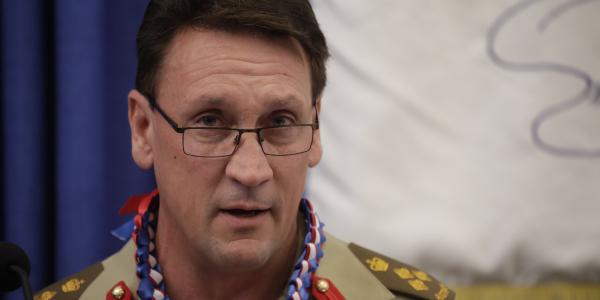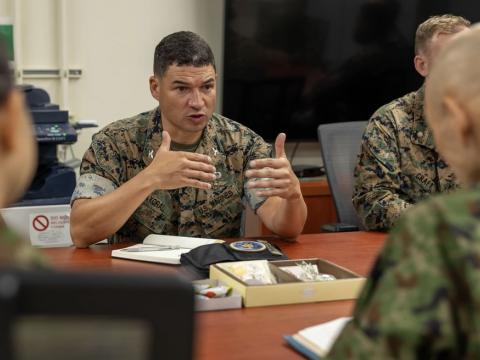Technology Underpins Indo-Pacific Command Intelligence
Being able to conduct successful operations in the Indo-Pacific region will require top-notch intelligence, and information technologies hold the key to achieving that goal, said panelists discussing how to incorporate cyber into multidomain operations. Speaking on the second day of AFCEA’s TechNet Asia-Pacific 2018, held November 14-16 in Honolulu, the panelists discussed what is needed as well as how to succeed amid growing challenges.
Australian Army Brig. Colin Karotam serves in the U.S. Indo-Pacific Command (INDOPACOM). Speaking as a member of that command, he stated, “We are bringing cyber out of the compartments; it will empower allies and partners to be part of multidomain operations.” Viewing cyber as a combat multiplier force, the brigadier said it requires new skills and methods of operations, but these must mesh within existing command and control. INDOPACOM’s push for a ““free and open Indo-Pacific” includes cyberspace, he added.
We are bringing cyber out of the compartments; it will empower allies and partners to be part of multidomain operations.—Brig. Colin Karotam,,AUSA, U.S. Indo-Pacific Command #AFCEATechnet
— Bob Ackerman (@rkackerman) November 14, 2018
“A strong cyber capability is a deterrent to our competitors,” offered Col. Jason A. Chung, USA, U.S. Army Pacific. “It also can open temporary windows that the joint force can exploit. It can present additional choices for commanders and additional dilemmas to our adversaries that they have to deal with.”
A strong cyber capability is a deterrent to our competitors. It also can open temporary windows that the joint force can exploit.—Col. Jason A. Chung, USA, U.S. Army Pacific #AFCEATechnet
— Bob Ackerman (@rkackerman) November 14, 2018
Multidomain operations mandate new uses of technology, the panelists offered. “With multidomain operations, I think of sensors traversing over a resilient architecture and going to shooters. … We might want to consider a multidomain operations center,” said Col. Mike Boutet, USAF, U.S. Pacific Air Forces.
With multidomain operations, I think of sensors traversing over a resilient architecture and going to shooters … We might want to consider a multiidomain operations center.—Col. Mike Boutet, USAF, U.S. Pacific Air Forces #AFCEATechnet
— Bob Ackerman (@rkackerman) November 14, 2018
Yet one intelligence officer decried the emphasis on cyber. “Cyber in and of itself doesn’t exist,” said Col. A.J. Moyer, USMC, G-2, Marine Corps Forces Pacific. “It is a part of a broader information environment.
“We talk about operating in a denied environment,” the colonel continued. “I don’t know that we spend enough time actually practicing in that. We don’t have lessons learned.”
Our biggest challenge is our resistance to change. Instead of innovation, we think about ways to add technology to the things we already do.—Col.. A.J. Moyer, USMC, G-2, Marine Corps Forces Pacific #AFCEATechnet
— Bob Ackerman (@rkackerman) November 14, 2018
Col. Moyer sang the praises of innovative technologies, but he warned that they are not being exploited effectively, with planners stuck in traditional uses. “Our biggest challenge is our resistance to change. Instead of innovation, we think about ways to add technology to the things we already do.”





Comments